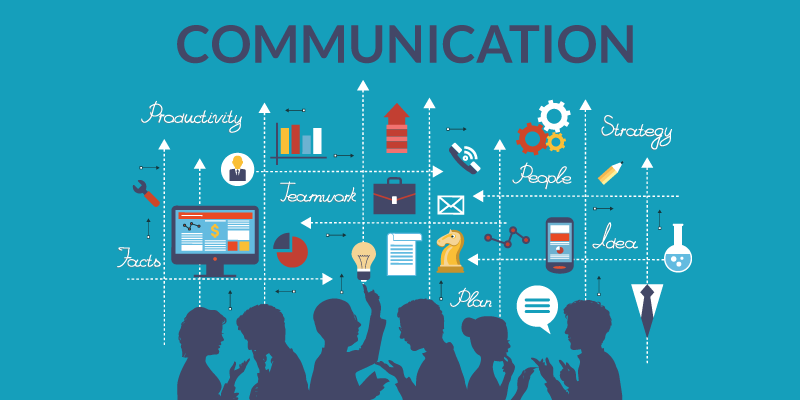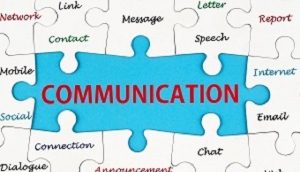Communication – Treat every HR transformation project like a patient on an ambulance bed!
We’ve all been there, you send off your final business case/your tender/your profile that looks absolutely perfect for that particular project… you wait and you wait and you wait … Oh look you’ve still not had any communication.
What about internally? You send your manager an email about some training you’re interested in/ you complete your bit of the jigsaw on a project and send it off looking for feedback… you wait and you wait and you wait… Oh look once again, still not heard anything.
What about at home? You text your other half asking what’s for dinner… Yes, ok point proven!
Above I have given a number of examples of when PEOPLE fail to communicate. Nowadays with all the different channels and methods we have available, it’s hard to understand how people don’t. That said I’d like you to think about the last 7 days… how many times have you not received communication about something important?
Your partner not texting you back about what you’re having to eat that night isn’t going to have serious consequences (although my girlfriend may be an exception of that!) However, imagine if the emergency services didn’t communicate? What would be the consequences?
Some will say there is no comparison to be made between someone on an ambulance trolley whose life is in the hands of those paramedics, who have to COMMUNICATE efficiently and effectively to save that person’s life and that of a HR change project, where the stakeholders have got to manage the life cycle of that project, one mistake and things could go disastrously wrong.
This blog has been written following on from personal frustrations when dealing with both internal and external stakeholders. Each HR transformation project needs to be that patient on the ambulance trolley. We all need to be those paramedics communicating effectively and efficiently to save that patient. We look to do these projects to improve our businesses, some of you will even be familiar with the term health check for some of the diagnostic pieces of work. Would one paramedic just do everything himself? Would he just do his bit and walk off? No is the short answer, so why do some people act like this on HR transformation projects?
What actually is communication?
After my rather strange analogy I thought it would be a good time to throw in some content that will be more suited to the people looking for a more formal blog. So, what really is communication?
“The imparting or exchanging of information by speaking, writing, or using some other medium” – Google
I’m sure we’re all familiar with what communication is but how many of us know about the different types of communication are? As technology grow’s to be more prevalent the way we engage with each other is constantly changing. For example more and more of us have smart phones, social media accounts amongst other things, therefore, we’re not communicating more interactively.
Below I have included 3 types of communication:
Verbal: Verbal communication is the use of sounds and words to express yourself, especially in contrast to using gestures or mannerism. An example of verbal communication is saying “No” when someone asks you to do something you don’t want to do – YourDictionary.Com
Written: Written communication involves any type of message that makes use of the written word. Written communication is the most important and the most effective of any mode of business communication – Study.Com
Technology Based Communication: Before anyone says anything, I am aware that technology based communication isn’t an official type. However, it’s easy to understand hence why I am using it. Technology based communication is using any type of platform in which involves a verbal or written style to communicate. E.g. on skype you would use verbal comms by speaking, however, you would use written by typing a message.
Why is communication important?
Can’t believe I am 600 words in and it’s only at this point that I have begun to note down in my opinion why communication is important…
- Collaborative working – When working as part of a team on a HR transformation project you’ll often find that the piece of work you’re completing will affect somebody else’s. Communication allows you to meet deadlines, ensure work is correct and meeting targets, as well as making sure that everybody is on board with the same end goal.
- Reduces Risk – Let’s go back to that patient on the ambulance bed. If those paramedics don’t communicate what happens? The risk of that patient’s condition getting worse increases. Exactly the same on a HR transformation project, you the paramedics (stakeholders) don’t communicate and your project (the patient) will have more risk of negative effects with a chance of failure – whatever that may look like.
- Morale – Yes… people being happy is a thing. I don’t know why but when some people go to work I feel as though they forget they’re human. Communicating whether it’s internal, external or your partner who’s making your dinner – it’s what makes the world tick and it ensures we are all informed, confident and present.
What happens when people don’t communicate?
I’ve now told you a couple of benefits but for those of you that sometimes need something to go wrong before it’s a consideration, I’ve included a few points below…
- Failure – If that word doesn’t intimidate you then I question your ambition. Personally, failure is my biggest fear. Imagine if those paramedics don’t communicate, everyone of them does what they want and they end up making a mistake… we all know how it ends. If you’re on a HR transformation project nobody speaks, everyone does their own things and someone within that food chain makes a mistake then what? What if 2 people make a mistake? Consider how large some of the project teams get, what if 50 people make individual mistakes!
- EVP – from a business preservice you tend to have attraction, attrition, performance, communication and engagement that all link back up to your EVP. The more people that communicate effectively, the more engaged people are to do their job, meaning that performance increases, attrition drops and external attraction increases What happens if we don’t communicate? Very different story. nobody communicates, people are less engaged, lower performance, higher attrition and you’re a less attractive business to work for.
The link between change and communications
I’ve tried to link everything back to change management and change and communications go hand in hand – they even have specific project roles for Change and Comms!
If you’re a business embarking upon a large scale change programme then it is so crucially important to communicate with your staff. Even if it’s just understanding their fears… even if it’s just asking for any recommendations. It will make your implementation of change ten times easier and funnily enough the guys who you may anticipate being a challenge during the change, they may even become your champions!
Don’t be the Max and Paddy of ambulance services, be as good as our ambulance service. Communicate internally, externally and you know what… even text your partner back letting them know what is for dinner!







